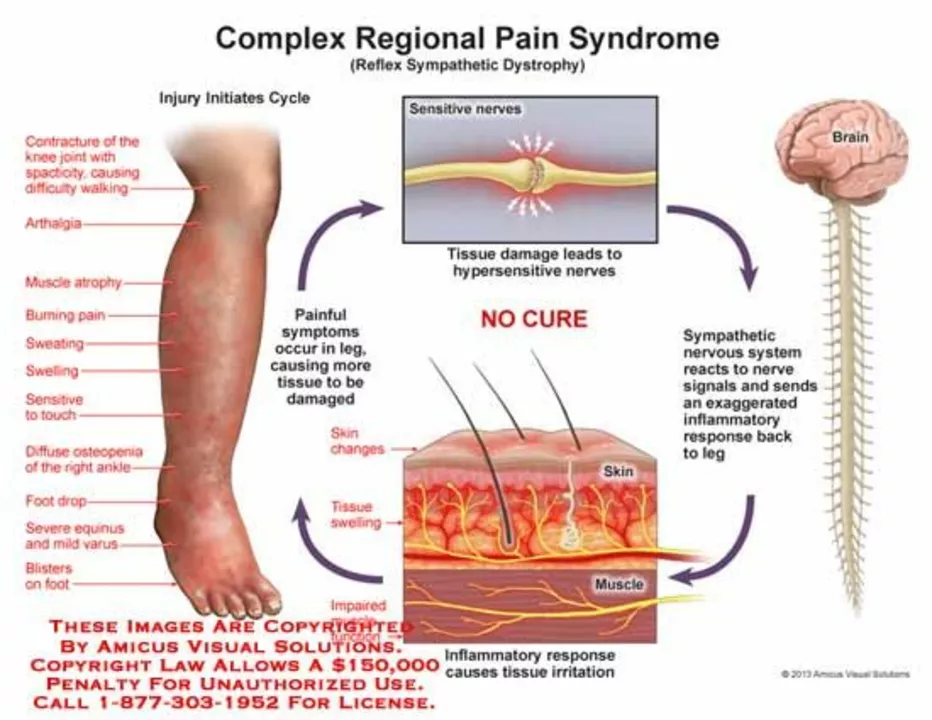Chronic Hepatitis C: What to Know and What to Do
If you’ve been told you have chronic hepatitis C (HCV), you probably have questions: how serious is it, what tests come next, and can it be cured? Short answer: chronic means the virus stayed in your body longer than six months, and modern treatments can clear the virus in most people. This page gives clear, practical steps so you know what to expect and what to ask your doctor.
How chronic hepatitis C is diagnosed
Doctors usually start with an HCV antibody test. A positive antibody test shows exposure, but not current infection. Next step is an HCV RNA (viral load) test — that tells you if the virus is still active. If the RNA is positive for more than six months, it’s called chronic HCV. Expect blood work for liver enzymes (ALT/AST) and tests to check for other viruses like hepatitis B and HIV, since co-infections change care.
Knowing liver damage matters. Your provider may order a FibroScan (transient elastography) or blood fibrosis scores to estimate scarring. Those results help decide urgency and monitoring, and they guide how long you may need follow-up after treatment.
Modern treatments and what to expect
Treatment today uses direct-acting antivirals (DAAs). These pills target the virus directly and are usually taken for 8 to 12 weeks. Common regimens are pan-genotypic, meaning they work across HCV types, so genotype testing is less critical than it used to be. Cure rates are over 95% for many people, defined as no detectable virus 12 weeks after finishing therapy (SVR12).
Before starting therapy, your doctor will check for drug interactions, kidney function, and active hepatitis B. Some people need dose changes or different pills based on other meds they take. Side effects are generally mild — fatigue or headache — but tell your clinician about anything new.
After successful treatment, most people stop routine viral testing, but if you had advanced fibrosis or cirrhosis you’ll need lifelong liver monitoring for complications like liver cancer. Vaccination for hepatitis A and B is recommended if you’re not already immune.
What you can do right now: stop alcohol or cut way back, avoid unnecessary acetaminophen doses, maintain a healthy weight, and treat other health issues like diabetes. These steps help lower ongoing liver stress while you clear the virus or recover from liver damage.
Got barriers to care? Many clinics and telemedicine services help patients start DAAs affordably. Patient-assistance programs from manufacturers can reduce cost for eligible people. Ask your clinic about options — treatment pathways are more flexible now than ever.
If you have questions about tests, drug choices, or where to get treated, write them down before appointments. Chronic hepatitis C can feel overwhelming, but clear tests, effective medicines, and routine follow-up make it a manageable condition for most people.
How to Manage Chronic Hepatitis C-Related Nerve Pain
As someone living with chronic Hepatitis C, I've experienced nerve pain and found ways to manage it. First, I've learned to maintain a healthy lifestyle with regular exercise, a balanced diet, and stress management. Second, I've found relief through over-the-counter pain relievers and prescribed medications, under my doctor's guidance. Additionally, alternative therapies like acupuncture and massage have proven helpful for me. Lastly, I've discovered that joining a support group and connecting with others facing similar challenges has made a huge difference in my journey.
VIEW MORE
